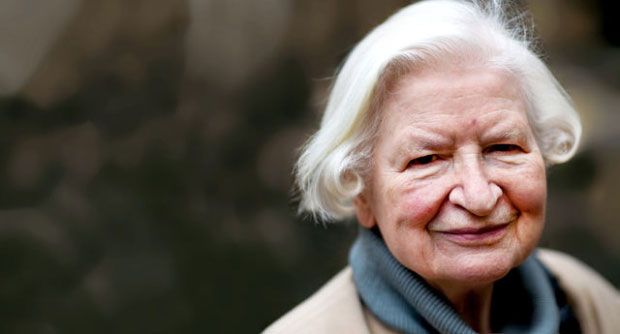
Sunset over Cambridge
Mornings.
I’m not a Morning Person.
Trust me, me and Mornings put together are BAD news. A Bit Not Good, as they say in the Sherlock fandom. This seems to be an ineradicable facet of my character. I’ve tried, Gods know, I’ve tried. But the other day, something I read got me thinking about this ‘trying’ to get up business a little more critically:
Terry Pratchett, in his essay on his friend, Neil Gaiman, in ‘A Slip of the Keyboard‘, states:
“He takes the view that mornings happen to other people. I think I once saw him at breakfast, though possibly it was just someone who looked a bit like him who was lying with their head in a plate of baked beans.”
You see, Society has this idea about ‘larks’ and ‘owls’. A dichotomy, if you like. You know, like ‘black/white’ and ‘male/female’ and ‘good/bad’. (Spoiler: Its usually pretty safe to assume there’ll be trouble when there are only two alternatives.)
There is this idea what there are people who can get up in the morning, who are at their best in the morning, who get their best work done while the rest of the world is still in bed. They make the most of the day, packing more into every hour than most other human beings. They are virtuous people, the kind of people who set their alarms for 4am so they can get an hour of meditation in on top of their hour at the gym. These are successful people. Healthy, industrious, productive, wholesome, and probably outdoorsy people. They hike at weekends, and get up to enjoy the sunrise. They are the kind of people who have time planners on their smart phones. And use them.
I have a friend who shouts ‘Good Afternoon!’ at me when I come down to breakfast at 10am. This person is very proud of the fact that he is a Morning Person, and thinks that he is wonderful because of it, and it is the only way to be. You know. Self righteous.
Morning People are ‘good’ people.
Then there are the ‘owls’, the Night People.
Night People are at best pale, unhealthy, and very probably lazy because they won’t get out of bed at a respectable hour. They wear black, which is always a sign of being a bad lot, and suggestive of not being, well, quite clean, if you know what I mean. They are un-productive good-for-nothings who waste the best of the day, the kind of people who leech off others more productive than themselves. They are more likely to fall into drink and drugs, or even prostitution, because lets face it, those are the kinds of things that go on in the dark, aren’t they. They are likely to be unreliable, promiscuous, even downright criminal.
(Can you hear the Calvinist shouting in the cultural background to this post?)
By now you will have realised what fascist, socially-controlling bollocks this all is. Neil Gaiman, for instance, is clearly not a Morning Person, yet has produced a vast body of work, including journalism, award-winning novels, screenplays and childrens books. He has single-handedly revolutionised the comic/graphic novel artform with his Sandman books.
And he wrote ‘Good Omens‘ with Pratchett, which for my money is one of the best works of literature the human race has ever produced. And I’m not kidding. If you haven’t read it, do. Otherwise we can never be friends.
What he is not is a lazy, good-for-nothing parasite in a black leather jacket because he doesn’t get up before lunch.
I don’t do mornings either. But I’ve written 7 novels and 107 published short stories and novellas. And I don’t wear much black.
Almost every book about writing that I’ve ever read says you have to get up in the morning and write before you do anything else. This is supposedly because you can access your immediately post-dream consciousness, which is where your imagination supposedly lives. Supposedly.
I think its just because the Puritans said you had to get up early and work hard so you could go to Heaven when you die.
As I said, I can’t do Mornings, though I admit this is partly to do with my ME/CFS symptoms which are at their worst first thing. It takes a couple of hours for the pain to wear out so I can crawl out of bed and get washed and dressed for the day. It certainly is not the time when I am most connected to my imagination.
Since I was a kid, I’ve lain in bed at night, in the dark, and told myself stories. To begin with it was about fear of the dark. And I had nightmares, which didn’t help. My mother got me a radio to play softly by my bed at night. My stories acquired a soundtrack based on BBC Radio Two’s evening schedule: country music, folk, big band and musicals. By the age of five I had quite an education in jazz. I also had the capacity to lie in the dark and tell myself ornate bedtime stories.
This is where the heart of my writing now lives.
I lie in the dark and listen to my husband fall asleep beside me. And then I begin. Great landscapes unroll before me. Lewis is seduced by Hathaway. Sherlock and John fight and make up. Vikings battle for control of freezing fjords. Medieval kings entice foreign princesses into loveless marriages made for political ends. A policeman encounters a vampire on his nightly beat. An angel pursues a demon in a car chase. A woman stands on a cliff, looking out to sea, watching a flight of Wellington bombers fly overhead, on their way to bomb the Nazis into submission.
If I hit a good scene, I tell it to myself over and over again, sometimes night after night, until I am word perfect. And then I write it down.
And that is where my ideas come from. This is my writing rhythm. And I can’t deny it any longer. I don’t fit into the cultural dichotomy of owls/larks. For a long time I have fought to be something other than I am. What I thought I SHOULD be.
These days I don’t care what Stephen King says about writing in the mornings. It obviously works for him. It just makes me ill.
Our creative life is embedded in our physical wellbeing. Find out how your body works best, and go with that. Slide writing into place within that routine. And yes, if getting up at 6am to write before the kids wake, as Toni Morrison had to in order to write ‘Beloved’, works for you, then fine. If you are a Morning Person, then fine. Go with that. Rejoice in it. Write your fifteen chapters per day to the sound of the morning chorus.
Meanwhile, there are those of us whose Muse comes out to play at twilight. Whose imagination only really kicks in when the darkness veils reality and allows us to overlay it with a new tapestry of being. Whose creativity slides into dreams, not out of them. And thats okay.
I am proud to be one such. Finally.
Happy Creating,
EF












